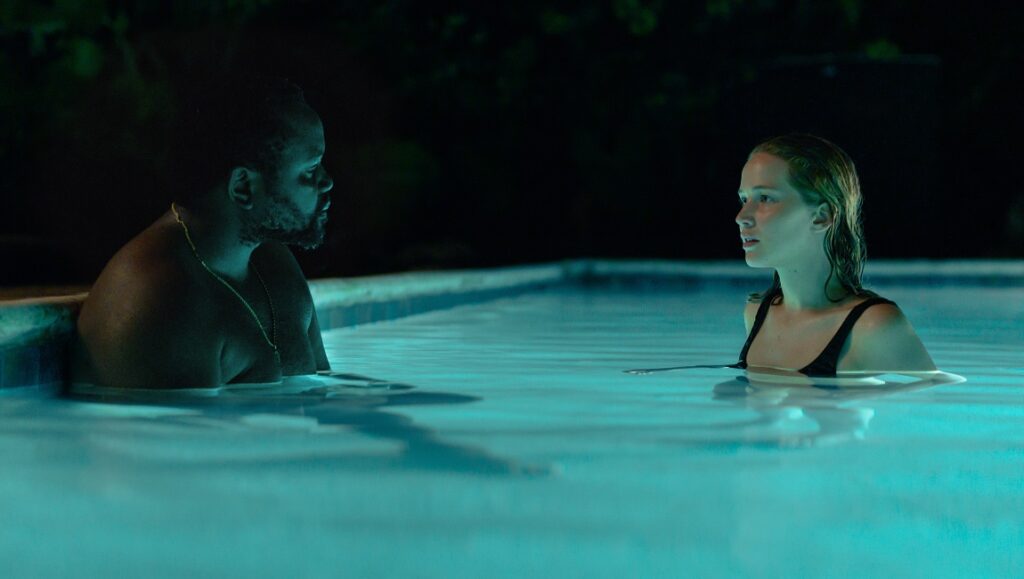Causeway is a sturdy enough film with fine anchoring performances, but it doesn’t otherwise boast much in the way of substance.
It’s been some time since we’ve seen Jennifer Lawrence step into a dramatic role quite like the one offered in Lila Neugebauer’s Causeway. Lawrence, who spent many years working on franchise blockbusters like The Hunger Games and X-Men and big-budget action movies like Red Sparrow and Passengers, has spoken recently about wanting to be more in control of her career rather existing only as a commodity to help sell tickets. With that in mind, Causeway indeed feels like a return to her independent roots, where films like Winter’s Bone provided her big break way back in 2010.
It’s certainly nice to see the actress working in this mode again, away from the likes of David O. Russell and Adam McKay; if anything, Causeway is a reminder of just what a gifted actress Lawrence really is, even with material that doesn’t always match her talents. As Lynsey, a former soldier who was discharged after a traumatic brain injury in Afghanistan, Lawrence is a broken woman on the road to recovery, lost and searching for meaning in a world that no longer makes sense to her. She soon encounters James (Bryan Tyree Henry), a mechanic with whom she forms an unexpected bond, and whose presence offers her at long last something to live for besides her work.
Causeway is the kind of understated, indie wartime drama that would have felt more at home 10 or 15 years ago, but first-time director Neugebauer, working from a script by Elizabeth Sanders, Ottessa Moshfegh, and Luke Goebel, manages to find some grace notes in this otherwise familiar tale. The screenplay, unfortunately, doesn’t give the lead duo much of substance to work with, treading water for much of its 90-minute runtime. Yet despite the film’s narrative meandering, Lawrence and Henry (who is absolutely magnetic here) mostly manage to keep the proceedings tolerable; their relationship is tenderly intimate, the kind of deep friendship that movies don’t often spotlight without trying to spin them into romance. Instead, Lawrence and Henry remain staunchly platonic — Lynsey is a lesbian, although the film doesn’t do a whole lot with that information — and the film is all the better for this lightly subversive touch.
But for all that, it remains difficult to escape the feeling that we’ve seen all this before in better films with stronger points of view. Causeway is ultimately too dramatically inert to leave much of an impression, this despite its fine, heavy-lifting performances. That doesn’t mean this doesn’t land as a nice little movie about two souls bonding over shared loss and trauma, but its execution, on both narrative and formal levels, never scratches much beneath the surface.
You can currently stream Lila Neugebauer’s Causeway on Apple TV+.


Comments are closed.